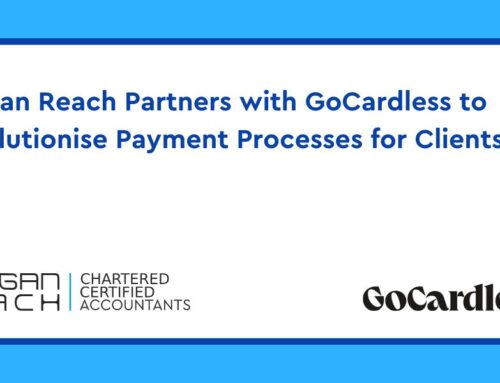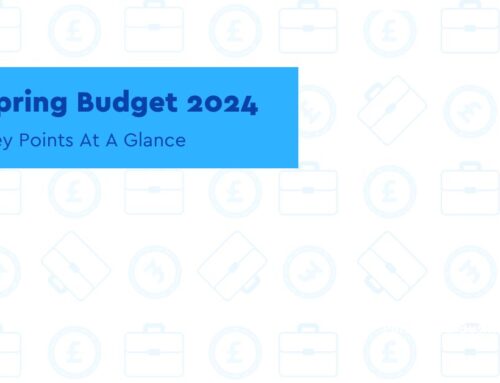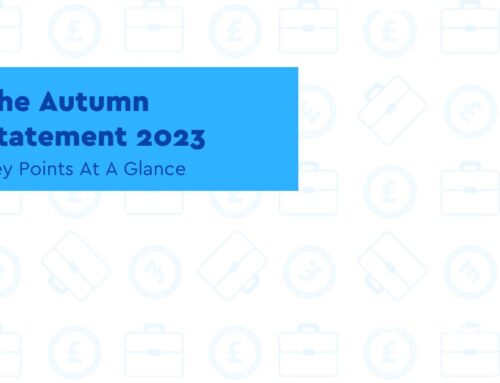Businesses support changing the tax year dates
Key Points
- The proposal would bring the UK system in line with the rest of the global community
- The UK is virtually alone in ending its tax year on April 5
A poll has found that 91 per cent of medium sized firms support simplifying the tax system by changing the end of the tax year to December 31.
The survey, conducted by international accounting firm BDO, found that businesses overwhelmingly believe that the time is right to align the tax date with the end to the calendar year. The Office of Tax Simplification is reportedly mulling the proposal which would bring the UK system in line with the rest of the global community.
Paul Falvey, Tax Partner at BDO, commented on the findings, saying “Clearly there will be challenges associated with implementing this change, not least for the Government itself. But in the long term, a 31 December year-end would also make life simpler for HMRC.
“Aligning the year-end with more of the international community will help taxpayers to calculate and HMRC to check that the correct amount of tax is paid by those doing business in more than one country,” he added.
Until 1752 the UK tax year started on the 25th of March, which was formerly the date of New Year’s Day. The date jumped forwards when Britain changed to the Gregorian calendar and in 1800 the Treasury decided that the tax year would end on the 5th of April.
The Institute of Chartered Accountants in England and Wales (ICAEW) broadly concurred with BDO’s findings.
Anita Monteith, a Technical Lead and Senior Policy Adviser for ICAEW said: “When we’ve asked our members for their views, there was an overwhelming preference for a move away from 5 April. Members with international connections would like the tax year-end to move to 31 December.
Nonetheless, Monteith noted that “businesses will need time to prepare and implement changes properly” to minimise the possibility of disruption.
The UK is virtually alone in ending its tax year on April 5. While Ireland previously shared the same tax year dates it changed them after joining the Euro in 2002.
Government considering National Insurance rise to fund social care
Key Points
- The majority of employers currently pay NICs at a rate of 13.8%
- Most employees pay NICs at 12% on their earnings
The Government could increase National Insurance contributions (NICs) by 1% for both employers and employees, a report has claimed.
The Times said Prime Minister Boris Johnson and senior ministers have agreed to increase NICs to put an extra £10 billion into social care, to fund long-term reform and reduce NHS waiting times.
The majority of employers currently pay NICs at a rate of 13.8%, while most employees pay NICs at 12% on their earnings. The move would go against a Conservative party manifesto pledge not to raise NIC rates.
NICs go into the National Insurance Fund, from which state benefits are paid. The state pension is the most costly of these benefits, accounting for more than 90% of the Fund’s annual outlay.
A review by the Government Actuary’s Department (GAD) predicted the National Insurance Fund would be empty by around 2032, resulting in this being a rather large elephant in the room for many recent governments.
Even before the pandemic, the GAD said: “If the system is to continue to cover the current form of state pension and other benefits, then either the fund’s income has to rise or expenditure has to be controlled”.
Dismayed at the possible tax hike while many firms are still reeling from the COVID-19 pandemic, Mike Cherry, chairman of the Federation of Small Businesses, said:
“A lot of business owners have had the worst 16 months of their professional lives.
“Many firms are now struggling with staff being pinged, emergency loans and late payments.
“NICs essentially serve as a jobs tax, making it harder for them to create opportunities.
“To hike them as the furlough scheme and wider support measures end would stop our economic recovery in its tracks before it’s even started.”
Any move could potentially take effect from April 2022.
Planning on travelling to Europe? New processes you need to be prepared for
Key Points
- If you are leaving GB with commercial goods in your luggage you must first declare the goods
- The amount of goods that you can bring in is known as your ‘personal allowance’.
We’re firmly in the summer holiday period and due to recent changes to travel advice, HMRC are reminding individuals of the new rules that have been in place since January 1 this year.
Whether you’re travelling between the UK and EU for business or pleasure, there are new processes you need to be prepared for.
In addition to Covid-19, passport and insurance requirements for travellers visiting the EU, there are new rules that will affect you if you bring in goods from abroad for personal use or carry goods for use in your business.
Travelling to the EU for business
If you are leaving Great Britain (England, Scotland and Wales) with commercial goods in your luggage or in a small vehicle, you must declare the goods before you leave by making one of the following:
- A full export declaration
- A simple online declaration
- An oral declaration at the ‘goods to declare’ channel or the red point phone in the customs area at the port or airport
- Declaration by conduct (not available if you carry commercial excise goods of any value)
You must submit a full customs declaration before you leave Great Britain if the goods you carry are worth more than £1,500, or weigh more than 1,000kg, or are classed as excise (alcohol, tobacco or fuel) or controlled goods (for example, toxic chemicals, firearms).
If your goods don’t meet these criteria then you can make a simple online declaration in the five days before you leave, or make an oral declaration to the Border Force officials, or a declaration by conduct.
The same thresholds and types of declarations apply for importing commercial goods into the UK; however, if you do not make a full import declaration, you will not be able to account for import VAT on your VAT return.
Bringing goods back to Great Britain without paying duty and VAT
You can bring some goods from the EU without having to pay UK tax or duty if they are goods for personal use or you want to give them as a gift.
The amount of goods that you can bring in is known as your ‘personal allowance’.
The personal allowance rules apply whether you bought the goods from a shop on a high street, or a duty-free shop at the airport, in the country that you visited.
HMRC has developed an online declaration service for you to check your personal allowances, see what tax and duties that may be due, declare your goods and pay any tax or duty.
For more information on personal allowances for Great Britain and Northern Ireland go to bringing goods into the UK for personal use.
There is a short video explaining the new rules for travelling with goods for personal use.
The rules above do not cover the import/export requirements of the EU country you are visiting.
What do I need to know about taking cash in and out of Great Britain?
If you are leaving or entering Great Britain with cash of £10,000 or more, you must declare it to UK customs authorities.
A declaration also has to be made if you are carrying cash of £10,000 or more from Great Britain to Northern Ireland. However, you do not need to declare any amount of cash if you’re carrying it from Northern Ireland to Great Britain.
You must declare cash in the three days before you travel.
You can declare online for:
- Cash you’re carrying between Great Britain and any other country
- Cash you’re carrying between Northern Ireland and a non-EU country, this includes Great Britain to Northern Ireland.
The rules above do not cover requirements for cash declarations when you enter the EU.
As well as the guidance provided above, HMRC has produced a dedicated travellers communications pack that may help you get to grips with the new rules.
Salary sacrifice: guidance for employers
Key Points
- A salary sacrifice arrangement must not reduce an employee’s cash earnings below the National Minimum Wage (NMW) rates
- The main advantage to employers for implementing salary sacrifice schemes are the savings they make in National Insurance Contributions (NICs)
A salary sacrifice arrangement is an agreement to reduce an employee’s entitlement to cash pay, usually in return for a non-cash benefit.
As an employer, you can set up a salary sacrifice arrangement by changing the terms of your employee’s employment contract. Your employee needs to agree to this change.
A salary sacrifice arrangement must not reduce an employee’s cash earnings below the National Minimum Wage (NMW) rates. Employers must put procedures in place to cap salary sacrifice deduction and ensure NMW rates are maintained.
As a result of the savings, when compared with the employee making personal pension contributions, salary sacrifice can produce the same pension contribution at a lower net cost, or a higher pension contribution at the same net cost.
Benefit of salary sacrifice for employers
The main advantage to employers for implementing salary sacrifice schemes are the savings they make in National Insurance Contributions (NICs). Employers pay NIC contributions on employees’ salaries but benefits such as childcare vouchers or pension contributions are exempt.
Tax and National Insurance contributions exemptions on non-cash benefits
Exemptions on benefits in kind do not apply to salary sacrifice schemes. The only benefits you do not need to value and do not have to report to HMRC for a salary sacrifice arrangement are:
- Payments into pension schemes
- Employer provided pensions advice
- Workplace nurseries
- Childcare vouchers and directly contracted employer provided childcare that started on or before October 4, 2018
- Bicycles and cycling safety equipment (including cycle to work)
The higher the salary, the more the employer has to pay in NICs. Reducing the employees’ salaries would therefore allow the employer to pay less in NICs. Collectively, across a large workforce, an employer can achieve a substantial saving in NICs.
Benefit of salary sacrifice for employees
The benefit received as a result of the sacrifice and the reduction in salary should cancel each other out. The advantage beyond that is that the employees should also pay less in NICs. Like the employer, the employees pay NICs on salary, so the lower their salaries the lower their NICs will be. This should produce an overall saving for employees.
Cutting salary can also help employees to put off repaying student loans. It can also enable employees earning just over £50,000 to cut their salaries to less than that amount so they can continue to receive child benefit, which begins to be clawed back if one partner earns more than £50,000.
Salary sacrifice could also affect entitlement to working tax credit or child tax credit, and it must not take pay below National Minimum Wage rates. Salary sacrifice is therefore not suitable for all employees.
There will also potentially be an impact on what the employee can then borrow in terms of a mortgage or loan if the lender uses the post sacrifice salary for income multiples.
Report a non-cash benefit
Reporting requirements for many non-cash benefits are different to those for cash earnings. In general, benefits must be reported to HMRC at the end of the tax year using the end-of-year expenses and benefits online form.
Weekly HMRC, Gov’t and tax updates
UK inflation slows down to 2% in temporary blip
Expectations mount that it will head up to 4% by the end of the year
Inflation in the UK slowed down to 2% in July, from 2.5% in June, according to the latest Office for National Statistics (ONS) data — a reading that seems to point to a temporary decline as expectations mount that it will head up to 4% by the end of the year.
The consumer price index was held back by an artificial bump in prices a year ago when the ONS stopped using estimates and started measuring prices. When this drops out of the figures, inflation will rise.
The Bank of England’s target rate is 2%.
The ONS said that the largest upward contribution to the 12-month inflation rate came from transport, as lockdowns eased and Brits got on the move again.
Within transport, the movements were caused mainly by changes in the price of motor fuels. Motor fuels made a downward contribution to the 12-month rate between March 2020 and February 2021, before the contribution turned positive in March 2021 and subsequently increased to 0.41 percentage points in June 2021. It has eased in July to 0.36 percentage points.
Deadline looms for parents to update Child Benefit for 16 year olds
HM Revenue and Customs (HMRC) is reminding parents and carers they have until 31 August 2021 to confirm whether their teenagers are staying in full-time education or training beyond 16.
Last week, teenagers across the UK received their GCSE or Scottish National Certificate results and many are now considering their future. If they decide to continue their full-time education or training, parents or carers will be eligible to continue receiving Child Benefit payments for their child.
HMRC has sent reminder letters to families receiving Child Benefit for their child in the last year of school or home education. If their child is staying in education beyond age 16, parents or carers must notify HMRC by the end of August, or their Child Benefit will be stopped.
Calls to extend complex Brexit Support Fund
The Brexit Support Fund closed to new applications at the end of June despite distributing around a third of its funding pot. The £20m Fund to support struggling businesses after Brexit has only given out £6.8m of its allocated funding.
Individuals and organisations are calling for the fund, now closed to new applications, to extend to a second round.
Businesses that trade with the EU were encouraged to claim up to £2,000 each to help pay for training and professional advice. However, figures show that businesses who applied only received £1,555 rather than the £2,000 maximum.
The Federation of Small Businesses (FSB) is one such group calling for a second round that is open to more business. “Businesses that derived more than 90 per cent of their export-derived revenue from trade with the EU were locked out because they had exported occasionally to non-EU markets,” the organisation said. “These businesses are still overwhelmed by the volume of changes to EU trade and need support.”
Get In Touch
At Morgan Reach, we understand every business needs a little help now and again-especially when it comes to the financial side of things. Therefore, to help our clients and visitors we endeavour to cover as much of the business news as possible. If you are self-employed or run a business and need assistance and advice on how these news could make a difference to you or your business, feel free to get in touch with the experts at Morgan Reach. Our business growth experts at Morgan Reach will guide you through what support is available for you or your business as well as the latest news that may affect you.







